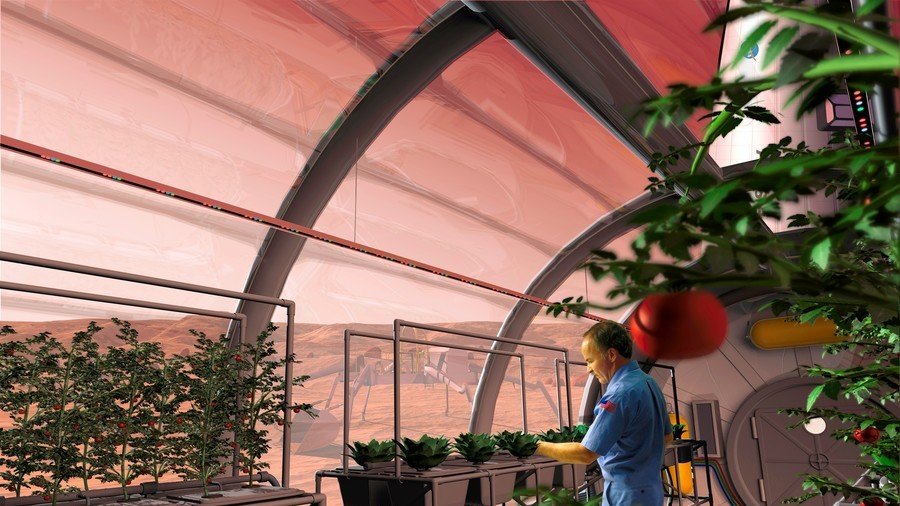Martian ‘rocket test’ proves worms can thrive in Red Planet soil

Rockets will take humans to Mars but rocket (of the leafy variety) could help them stay there. Simulating its growth in deep space, scientists made a key discovery that could yield Red Planet farming – worms can reproduce in Martian-like soil.
The finding, announced by Wageningen University in the Netherlands on Monday, came as researchers attempted to grow arugula, also known as rocket, in Mars soil simulant provided by NASA.
READ MORE: Cosmic chives: Crops grown in Mars-like soil may feed future missions to Red Planet
The faux extraterrestrial soil, made from volcanic soil, is used by NASA to replicate the chemical make-up of Mars regolith matter. The Dutch research facility has previously grown tomatoes, peas, garden cress, quinoa and chives using the soil.
During the study, which is an exploration into ways of feeding Mars or moon colonists, scientists discovered that worms used to break down organic matter had not only helped fertilize the soil but reproduced in it too.
Two young worms were found in the Mars-like soil, mixed with pig manure, something Wageningen University biologist Wieger Wamelink described as a pleasant surprise.
.@wamelink_wieger trof de eerste wormen aan in zijn Marsbodemexperimenten, die een belangrijke rol spelen in een duurzaam gesloten agrarisch systeem om astronauten te kunnen voeden. 🚀 https://t.co/qV2occ27VE
— Wageningen U&R (@WUR) November 27, 2017
“Clearly the manure stimulated growth, especially in the Mars soil simulant, and we saw that the worms were active. However, the best surprise came at the end of the experiment when we found two young worms in the Mars soil simulant,” he said.
“The positive effect of adding manure was not expected,” he added. “But we were surprised that it makes Mars soil simulant outperform Earth silver sand.”
Worms have been highlighted as an important ally in the bid to colonize other planets. They help to break down dead organic matter by consuming it and boost the nutrients in soil. As part of a ‘Martian garden’ project NASA has been experimenting with earthworms, since they eat bacteria and have a relatively long lifespan for animals of their size.













